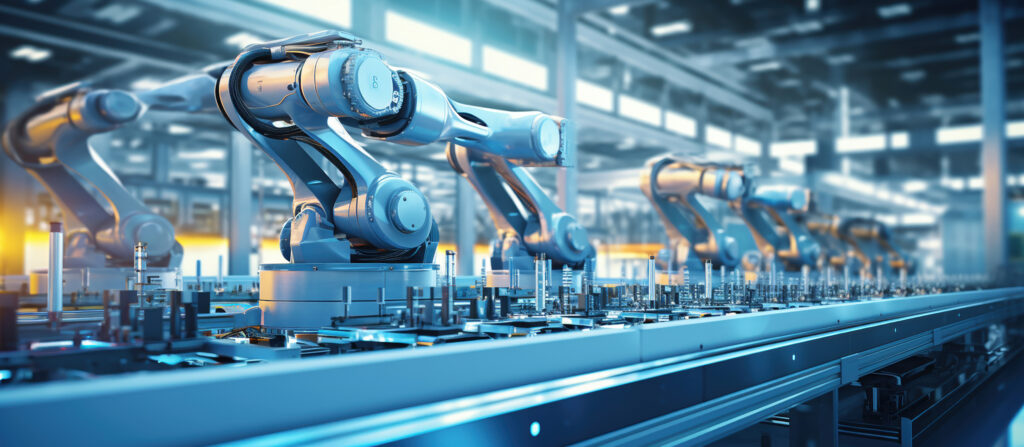Transforming the Gear Industry with Smart Manufacturing Technology
The Impact of Smart Manufacturing Technology on Modern Gear Production The gear industry, a cornerstone of mechanical engineering, is experiencing a significant transformation with the advent of Smart Manufacturing Technology (SMT). As industries globally shift towards more efficient, cost-effective, and sustainable production methods, the integration of SMT in gear manufacturing is not just a trend […]

The Impact of Smart Manufacturing Technology on Modern Gear Production
The gear industry, a cornerstone of mechanical engineering, is experiencing a significant transformation with the advent of Smart Manufacturing Technology (SMT).
As industries globally shift towards more efficient, cost-effective, and sustainable production methods, the integration of SMT in gear manufacturing is not just a trend but a necessity. This article explores how SMT is revolutionizing the gear industry, enhancing productivity, reducing costs, and driving innovation.
The Role of Smart Manufacturing Technology in Gear Production

Smart Manufacturing Technology (SMT) refers to the application of advanced technologies such as the Internet of Things (IoT), Artificial Intelligence (AI), Machine Learning (ML), and big data analytics in manufacturing processes. In the gear industry, SMT enables manufacturers to optimize production, improve precision, and reduce waste. The integration of these technologies leads to the creation of smart factories, where every aspect of the manufacturing process is connected, monitored, and controlled in real-time.
Enhanced Precision and Quality Control
One of the most significant benefits of SMT in the gear industry is the enhancement of precision and quality control. Traditional gear manufacturing methods often involve multiple stages, each with the potential for errors.
SMT allows for real-time monitoring and adjustments, ensuring that each gear is produced with the highest level of precision. By using sensors and AI-driven analytics, manufacturers can detect and correct deviations in real time, leading to a significant reduction in defective products.
Improved Efficiency and Productivity
Efficiency and productivity are critical factors in the competitiveness of the gear industry. SMT enables manufacturers to streamline production processes, reducing downtime and minimizing waste.
With the help of IoT devices, machines can communicate with each other, leading to more efficient coordination and operation. For instance, predictive maintenance, powered by AI, can anticipate machine failures before they occur, reducing downtime and improving overall productivity.
Cost Reduction and Waste Minimization
The adoption of SMT in the gear industry also brings about substantial cost savings. By automating various aspects of the manufacturing process, SMT reduces the need for manual labor and minimizes human error.
Moreover, the ability to monitor and control the production process in real time leads to more efficient use of materials, reducing waste. The combination of these factors results in significant cost reductions, making gear manufacturing more competitive in the global market.
Customization and Flexibility in Manufacturing
In today’s market, customization is increasingly important. Customers demand products tailored to their specific needs, and manufacturers must be able to respond quickly to these demands.
SMT allows for greater flexibility in manufacturing, enabling the production of customized gears without compromising on efficiency. Through advanced software and AI, manufacturers can quickly adjust production parameters to produce gears that meet exact specifications.
Sustainability and Environmental Impact
The gear industry, like many others, is under increasing pressure to reduce its environmental impact. SMT contributes to sustainability by optimizing energy use, reducing waste, and improving resource efficiency. Smart factories equipped with energy-efficient machines and processes consume less power and produce fewer emissions. Additionally, the ability to monitor and reduce waste in real time further enhances the environmental benefits of SMT.
Challenges in Implementing Smart Manufacturing Technology
Despite its many benefits, the implementation of SMT in the gear industry is not without challenges. The initial investment in smart technologies can be substantial, and the integration of these technologies requires skilled personnel.
Furthermore, the transition to smart manufacturing involves a cultural shift within the organization, where employees must adapt to new ways of working. However, the long-term benefits of SMT far outweigh these challenges, making it a worthwhile investment for forward-thinking gear manufacturers.
The Future of Gear Manufacturing with SMT
As technology continues to advance, the role of SMT in the gear industry will only grow. The future of gear manufacturing lies in the development of even more advanced smart technologies, such as AI-driven design and fully autonomous production lines.
These innovations will further enhance the precision, efficiency, and sustainability of gear manufacturing. Moreover, as SMT becomes more accessible, even smaller manufacturers will be able to adopt these technologies, leveling the playing field and driving further innovation in the industry.
Smart Manufacturing Technology is revolutionizing the gear industry, bringing about significant improvements in precision, efficiency, cost-effectiveness, and sustainability. While the transition to SMT presents challenges, the long-term benefits make it an essential strategy for manufacturers aiming to stay competitive in a rapidly evolving market.
As SMT continues to evolve, its impact on the gear industry will only grow, paving the way for a more efficient, sustainable, and innovative future in gear manufacturing.
Key Benefits of Smart Manufacturing Technology in the Gear Industry
- Precision and Quality Control: SMT enhances precision and reduces defects through real-time monitoring and adjustments.
- Efficiency and Productivity: IoT and AI improve machine coordination, leading to higher productivity and reduced downtime.
- Cost Reduction: Automation and real-time process control reduce labor costs and material waste.
- Customization: SMT allows for the efficient production of customized gears.
- Sustainability: SMT optimizes energy use and reduces waste, contributing to environmental sustainability.
- Future Innovation: Continued advancements in SMT will further transform gear manufacturing, driving innovation and competitiveness.
The integration of Smart Manufacturing Technology in the gear industry is not just a trend but a transformative force that is reshaping the way gears are produced. From enhancing precision and quality to improving efficiency and sustainability, SMT is a game-changer for the industry.
As manufacturers continue to adopt and refine these technologies, the gear industry will become more competitive, innovative, and sustainable, setting new standards for excellence in manufacturing.

